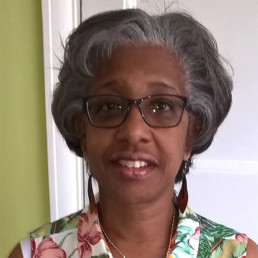
Written by Chiaka Amadi
Chiaka has almost 40 years of experience as a teacher and EAL leader at school and local authority level. Her work as an independent consultant and trainer focuses on language acquisition, literacy development and multilingualism.
In August, I read a succession of tweets about attacks on three WoC writers, Chimene Suleyman, Monisha Rajesh and Sunny Singh which alerted me to the controversy around a book ‘What I Taught Kids and What They Taught Me’. https://minamaauthor.com/2021/08/15/a-controversy-i-recently-read/?like_comment=242
The WoC had challenged the racialised and stereotyped language used by its author, Kate Clanchy, to describe her students. Numerous passages were criticised by a range of commentators citing derogatory descriptions of neurodiverse students; of some students’ choice of clothing; of the very carrying of their bodies. The lively discussion of the book on #DiReadsClanchy was then illuminating in helping me to understand the range of concerns concerning the depictions of the students.
What astonished me the most, however, was how such content could have ever been published as the considered writings of a teacher. How did the editors at Picador, Ms Clanchy’s publishers, perceive her writing? How could those critiqued sections of the book not have rung alarm bells during the editing process?
Even if knowledge of the protected characteristics in the Equality Act 2010 didn’t alert editors to the need for sensitivity and respect in relation to Ms Clanchy’s students, a quick read of Part Two of The Teachers Standards should at least have made them ask if its “high standards of ethics and behaviour” were being fulfilled: https://assets.publishing.service.gov.uk/government/uploads/system/uploads/attachment_data/file/1007716/Teachers__Standards_2021_update.pdf
Did the editors really believe that the words in front of them truly treated pupils with “dignity” and were “rooted in mutual respect”?
It is the children in the book who flag up that there are different life realities, experiences and perceptions at work. Ms Clanchy acknowledges that they teach her “how white I am” and explains to the reader the way the children encode her “super-empowered” membership of the “world’s ruling class” into the word “English”. Did the editors really not feel the need to explore that dynamic both as it appeared on the page and as it evolved as a conceit throughout the book?
Or did Ms Clanchy avoid this particular lesson by diverting to the fact that she is Scottish? This artful manoeuvre leads to the uncritical acceptance by the editors and subsequently by many readers, of Ms Clanchy’s first person narrative. It centres the perspective of a white, middle-class, well educated, abled person as the default for our interpretation. It invites the reader to peer through that particular lens at the students, and as ‘we’ do so, ‘we’ lap up her observations about them and about social matters. ‘We’ are in danger of objectifying and diminishing any student described who does not fit into that normative default, even as Ms Clanchy thinks she is being positive. This is a red flag for DEI activism.
Picador have announced a re-write of the book to remove any “offensive passages”: https://www.theguardian.com/books/2021/aug/10/kate-clanchy-to-rewrite-memoir-after-criticism-of-racist-and-ableist-tropes. Various idioms come to mind, the most polite involving silk purses and sow’s ears. While Ms Clanchy claimed that listening to recent responses to her work had been “humbling”, her publishers by contrast seemed energised, recruiting “specialist readers” to assist with the re-working.
To express my concern at all this, I recently signed an open letter to the publishers: https://docs.google.com/document/d/1EWl1D-Duw2qiwAWUsRANfo8VcqzDMANJ/edit
Picador have now replied to the 350+ signatories of this letter and you can read and evaluate that response here:
https://drive.google.com/file/d/1e0uNH-ivVWBhXav7VD5yl_1mt5CgyAkz/view?usp=sharing.
Please comment if you wish. The feedback is being collated for return to Picador.
I was also pleased to read an open letter from a group of Ms Clanchy’s former pupils: https://www.thebookseller.com/news/clanchy-students-say-they-did-not-experience-safeguarding-or-consent-issues-1278744. I felt able to infer from their articulate and cogent advocacy on behalf of their teacher that their school experiences had contributed to an understanding what it takes to feel part of a community; of the give and take, the to and fro that is part of learning and teaching. They feel safe and confident. Their personal relationship with their former teacher is intact and strong.
However, we cannot shrug our shoulders and say, ‘all’s well that ends well’. To date, no concrete assurances have been given regarding the future ethical standards we can expect from Picador in relation to non-fiction writing about children. The issue is not about the affection or regard that any individuals might hold for others, but the wider debate around representation, ethics, literature and publishing.
As teachers, safeguarding children sits at the heart of our role. All stakeholders in education must ensure that our work does not reinforce stereotypical and clichéd views of children. The whole episode serves as a timely reminder of the need for each of us, in our own contexts to reflect on exactly what our gaze encapsulates. We must consider how our conversations and interactions with, and about children, respect their individuality and humanity. Our words can become wider, more permanent representations of them. We must endeavour to do no harm.

